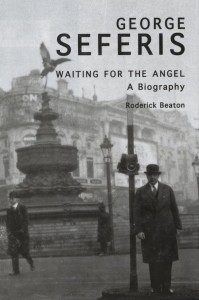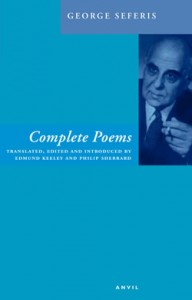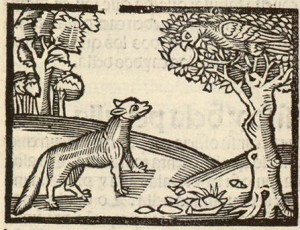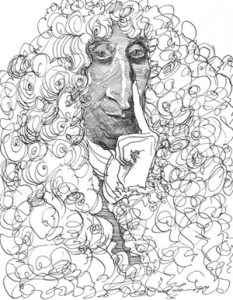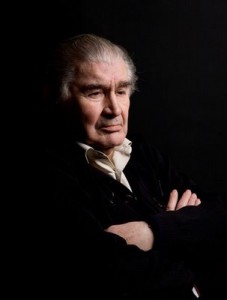
BOOK REVIEWS:
CONSTANTIN ROMAN – “CONTINENTAL DRIFT – COLLIDING CONTINENTS, CONVERGING CULTURES”
Cambridge History of Science
www.constantinroman/continentaldrift
www.constantinroman.com/continentaldrift/english/preface….

Prof. John DEWEY, FRS
Professor John F. Dewey, FRS, FGS
(Universities of Oxford and California, Davis)
“Continental Drift” offered me a relaxing excellent read full of humour, humanity, wisdom and good science, way beyond the History of Science. This book is an Ode to the Joy of Freedom, of a kind celebrated in Enesco’s Rhapsodies, or the cosmic vision of Brancusi’s “Column of Infinity”: this is Constantin Roman’s “Ninth Symphony”. I trust the reader would share with me pleasures that have derived from reading ‘Continental Drift’.

Prof. Masaaki Shimizu
Professor Masaaki Shimizu
(Toyama University, Japan) (Resource Geology)
Constantin Roman’s research was carried out in an inspiring scientific environment at Cambridge. , He has brought new ideas and tectonic solutions to the plate tectonics by the introduction of the concept of “non-rigid” plates or “buffer” plates – now called “continuums” – a concept which is still valid today.
Prof Sherban Veliciu,
(Geological Institute of Romania and University of Bucharest)
Constantin Roman’s thinking, whilst it flourished in the stimulating Cambridge environment, which represents the pinnacle of British Academia, would not have been possible without the broad culture which he received from Romania. This confluence is reflected in the very spirit of “Continental Drift”. For, as we proceed, we must remember that this is not a textbook of popular science on the History of Plate Tectonics, but a series of personal impressions, or “cameos”, which some day might complement such History of Science.

Tom G. Gallagher
Prof. Tom G. Gallagher
(Institute of Peace Studies, University of Bradford)
Constantin Roman writes with candour, wit, and humility. His remarkable life story unfolds with effortless simplicity thanks to his ability to write mellifluous English influenced by Romanian cadences. This is a book which should interest the Romanian public at home and abroad as well as the general public- academic and non-academic

Dennis Deletant
Adaptation to life in Western Europe posed a challenge in itself to East Europeans, but coping with the singular ways of the British added an extra dimension. It is in this part of the book that Roman is at his best. Roman’s story is one of success, unlike that of thousands of his contemporaries in Romania whose lives were sadly constrained by the severe restrictions placed on personal freedom by the Communist regime. His account is inspirational, and at a time when many young Romanians still tend to expect the state to map out their lives for them, it is an example of what individual initiative can achieve in a free-market economy.

Andy FLEET
Dr. Andy Fleet,
Senior Keeper, Natural History Museum, London
(Mineralogical Soc. of GB and Ireland Bulletin, August, 2001):
‘Continental drift’ is by, and about, one individual’s successful attempt to escape a communist corner of this maelstrom. Only in passing is it about geoscience, specifically continental tectonics. The title, which Sherban Veliciu in his ‘Preface’ suggests is a triple entendre, conceals a mixture of personal odyssey, traveller’s impressions and brief cameos.
Some greats of the Earth Sciences appear, Bullard, McKenzie, Matthews, Runcorn, but, with the notable exception of the “friendly, unceremonious” Bullard, it is the ‘great and good’, who came to Roman’s aid as he desperately sought to stay in the UK, who are the memorable characters of the tale. Lord Goodman, the retired diplomat Sir Duncan Wilson, and William Deedes – Private Eye’s ‘Dear Bill’ of the Thatcher years – are among those who helped the young Roman.
There are also digressions which I suspect owe something to Roman’s enthusiasm for culture in its broadest sense and must have made him a compelling companion when he worked as a tour guide in Cambridge to make ends meet. His brief travelogue on the caves of Lascaux, which, with his typical brass neck, he got permission to enter when they were closed to the world, is forgivable alongside his joy and wonder at the visit
Despite these reservations the book does add up very much to an “Ode to the Joy of Freedom” as John Dewey refers to it in his Foreword. Though I am left with the impression that inside there is another, not necessarily shorter, book struggling to get out. One that recounts the same tale of enthusiasm, obduracy and persistence but more fully and less disjointedly. One with more flesh on the bones of the characters involved.

Nick Petford
Dr. Nick Petford
University of London
(“The Shifting Fortunes of Drift”, The Times Higher Education Supplement, June 20, 2000)
“The plate tectonic theme is continued in Constantin Roman’s “Continental Drift, Colliding Continents, Converging Cultures”. Roman, having escaped Ceausescu’s Communist Romania in the late 1960’s arrived in Britain when, as in the United States the theory of plate tectonics was finally coming of age. Set against the background of Cambridge dons and college gardens, Roman’s story is centred on Bullard Laboratories, where the company of some of the most eminent earth scientists of the day, he began a PhD on deep earthquakes in the Carpathians. Despite some initial reservations, I soon became absorbed in the twists and turns that befell poor Roman bureaucratic hassles with entry visas, uncertainty about the academic credibility of his ideas of buffer plates and finally, just when he is confident that he is onto something big, he discovers that an American team have got there first. Nearly. But despite its human drama I cannot help wondering who this book is aimed at. It is a strange mix. It is neither a textbook, nor a history book in the sense of Oreske’s detailed work. Instead it is an autobiographical account bordering on the self-indulgent and peppered with the kind of bizarre incidents that would not seem out of place in a Terry Pratchet novel.
I would nonetheless be surprised if the books did not share some common ground. I found it in Roman’s account of the subdued response from much of the geological community to his idea of non-rigid plate margins; “geology remains a conservative profession, where people view change with suspicion”. A sentiment not out of place with the American mindset so thoroughly documented by Oreskes”.

Fotini Pomoni
Prof. Fotini Pomoni,
University of Athens
Having read “Continental Drift” I was very impressed so I decided to write to you in Romanian, albeit with many mistakes. Ever since I saw you in Bucharest I had the feeling that I met a man about the world with a true sense of humour. Subsequently from the book I discovered many other facets of your DNA. In my opinion you are born a free man unwilling to compromise in charting your future. You have come a long way in a life full of variegated experiences, so I consider you a rich man, a present-day Odysseus, aiming to reach his Ithaca. I wish you therefore not to hasten your pace to reach your Ithaca. Let it unfold as a long journey, a long life.
Dr. Leonore Hoke,
(Consultant Geologist, Austria and New Zealand)
The book finally arrived here on Saturday 12th August. That weekend I went skiing on Mt Egmont and took it with me and read it from cover to cover. I enjoyed it very much and it brought back many memories of Cambridge. It certainly fires up my fighting spirit, something I need here in New Zealand.
Dr. Marina Shimizu,
University of Toyama
So, because Masaaki-san (Professor Shimizu, n.t.) started to read the book I took the opportunity of perusing it and I am absolutely stunned. Constantin’s book is not just glib science it is real life. What a style and what humour. Dear Constantin this is something to be read breathlessly. First of all it is a book which, for me, I feel it particularly important and fascinating. Now I understand better the true meaning of its dedication. I thank you so very much – it was a real pleasure reading it.
Prof. Catherine Durandin,
INALCO, Institut National de Langues et Civilisations Orientales, Paris
I started your book. It is very witty and like the style. I am convinced that your “Continental Drift” deserves to be translated (in French n.t.). Your portrait is absolutely riveting. I gave the publisher your book with a very enthusiastic reference.
Discover the history of Cambridge here:
Unknown Commentator, Romania’
Mda…modestia la ea acasa. 🙂 In legatura cu opinia dvs… Io, cred ca nu vor sa se destepte si mai bine schimba imnu` . 🙂
•
Author’s response to Anonymous Romanian Comments”
Multumesc pentru aprecieri: la varsta mea este mai greu ca sa rosesc la fatza – dar chiar merit toate complimentele acestea? Sigur ca imi fac placere si faceti parte dintr-un grup restrans (sau poate dintr-un grup mai larg de cititori care totusi nu s-au exprimat , desi poate au gandit aceleasi lucruri). Problema, dupa 18 ani dela caderea lui Ceausescu, este ca atitudinea marxista, grefata pe cea balcanica, inca nu s-a schimbat si cartea inca mai jeneaza. Pe la edituri s-au cocotat aceiasi pigmei morali de pe vremea regretatului Conducator si daca inainte cenzura era eficace, acuma cabala cercului de invartiti ai marei si infinitei “Tranzitii” controleaza inca ce mai poate controla – litera de pe la edituri. Spuneam aceasta unui distins carturar ardelean referindu-ma la acesti pigmei drept “boieri ai mintii” la care mi-a ripostat: “Care boieri ai mintii, domnule? acestia nu sunt decat niste nomenclaturisti cu pretentie de boierie intelectuala a carei nivel nu se ridica nici macar pana la genunchiul broastei”. Sigur ca mi s-au facut “propuneri generoase” intre aletele de Institutul Cultural Roman – fie promisiuni fara acoperire, fie incercari de a stoarce de la autor mii de dolari pt contributia publicarii – o nesimtire funciara, atat de curenta la Bucuresti si aiurea. incat enormitatea ei nu mai jeneaza pe nimeni.. Dar sa ramanem optimisti – deschiderea frontierelor ne vor deschide si noua orizonturile, vom face comparatii si ne vom destepta, asa cum ne indeamna Imnul National! O zi buna, cu multumiri reinnooite!
•
Anonymous, Romanian Critic:
In fine am terminat de citit cartea. Sunt coplesita. In acelasi timp , plina de admiratie. Bine spunea tutorele dvs. ( Teddy) : ”Tipic Constantin, plin de paradoxuri si de jocuri la limita” . Dupa Cambridge, mai urmeaza si alte jocuri? Pot afla continuarea? Ar trebui sa fie publicata cartea si in limba romana. Pacat ca nu se gaseste o editura. Unii romani ar avea multe de invatat. Intotdeauna avem cate ceva de invatat dintr-o carte. Oricum, asa cum spuneati si dvs. in Postfata : ”Totul nu este pierdut – mai este inca o speranta” . Nu stiu daca e un romanism dar noi mai spunem : ”Speranta moare ultima” . Respecte domnule Roman!
Jean VERKAEREN
Université Catholique de Louvain et Université de Liège.
Geologica Belgica – November 2006
Constantin ROMAN, 2000. Continental Drift: colliding continents, converging cultures. Institute of Physics Publishing, Bristol and Philadelphia, ISBN 0 7503 0686 6, 210 p., Price EUR 18.
This is an extraordinary book. Despite its title it is not a treatise on plate tectonics, although its author is a well-known geophysicist, who has made fundamental contributions to the study of the collision of continental plates, by means of seismology. His PhD thesis, “Seismotectonics of the Carpathians and Central Asia”, (submitted in 1974, at Cambridge University, where he was the last PhD student of Sir Edward Bullard), sent shock-waves through the scientific community. He put forward solutions and models on the sub-crustal earthquakes of the Carpathian arc of Romania and presented the first focal mechanism solutions to the Himalayan earthquakes (delineating the newly-defined Sinkiang and Tibetan plates). He invented as early as 1972 the notion of “non-rigid plates”, or “buffer plates”, before the notion of continuums was adopted in geology. After graduating from Cambridge he worked as a Consultant for Shell, BP, Exxon, Petrofina, Total and all other oil majors, to become a world expert in basin analysis, and to contribute to the discovery of many oil fields in the North Sea, Barents Seas and elsewhere. So much for his scientific career.
As a refugee from Ceaucescu’s dictatorship, he metaphorically performed, in a sense, a “continental drift”, from his native Romania to England and Western scientific and human society, because one must not forget that on the British Isles, all Europeans are referred to as “continentals”, hence the title in his book being fully justified, in the best tradition of British pun of double-entendre.
Constantin Roman was born in 1941, in Bucharest, into an intellectual family, who never kow-towed to the communist régime: this was for him a source of difficulties both to get out of his country to study abroad, as much as during his stay in England, as a student on a Romanian passport, but without his country’s blessing.
* The first chapter, “The DNA Signature”, explores the author’s Romanian roots on the paternal side, and Moldavian Czech and Transylvanian ancestry on the maternal side. He got a Master’s degree in Geophysics from the Bucharest University, in 1966, with a dissertation on Palaeomagnetism. His story of the curriculum and teaching methods of University studies in Romania and the relationships between students and professors is truly superb.
* Chapter 2, “NATO Secret”, tells us about his escape from Romania and his arrival at the University of Newcastle, in England, in April 1968. This visit was made possible through a NATO travel grant, which he kept secret from the Romanian authorities, which otherwise might have found a convenient excuse to deny him a passport to travel to the West. In this way he applied for and got a passport with a one-month visa to travel to England. He left Romania with five guineas in his pocket (£5.05) and two icons he hoped to sell, on the last day of the meeting on Palaeomagnetism, where he was scheduled to present the results of his Romanian research. The Head of the School of Physics, who had organised the meeting was Prof. Keith Runcorn, F.R.S., famous in the fifties for his pioneering work on the geophysical interpretation of palaeomagnetic data, proving the polar wandering paths, which remains to date a corner stone of the continental drift theory. In search of a thesis subject, Constantin visited also the Oxford Laboratory of Archaeometry, where palaeomagnetism was used to dating archaeological clay artefacts.
Chapter 3, “Paris Students Riots”, relates the story of his transit through Paris, on his way back to Romania, during the fateful May 1968. Here he witnessed and describes the extraordinary events which, incidentally, made him figure out the hitherto unbeknown to him practice of “Vivre à droite et penser à gauche”. But the general strike in France causes Roman’s French transit visa and the Romanian re-entry visa to expire and he fears being sent back to Ceausescu’s Romania, as an “illegal”, and thus jeopardise any future chance of travel to the West. Thanks to the Governor of the Banque de France his French visa is extended to three months, whilst the Romanians refuse the extension of his re-entry visa. Selling his icons allows him to pay his return ticket to Newcastle, where he is invited for the summer by Prof. Ken Creer.
* Chapter 4, “Pet on One Pound a Day”, relates his stay at the Laboratory of Palaeomagnetism, in Newcastle, where he comes as a Visiting Research student, but also tells us about the people and the academic atmosphere, in England of the late 1960’s. Unable to find a scholarship at Newcastle to pursue his PhD, beyond the summer, he is encouraged to apply to other universities, in the UK, Canada, the US and Australia, as all along he is haunted by the deadline of his visas, but he has no alternative option, as returning to Romania would jeopardize any future plans in academia. He learns by accident that a research scholarship is available from Peterhouse, the oldest Cambridge College (founded in 1284). From an unexpected quarter, Tuzo Wilson, the inventor of the “hot spots” offers him the position of a teaching scholarship at Toronto. But as he is short-listed and interviewed at Cambridge by Sir Edward Bullard, a geophysicist of world repute, Roman finally chooses Cambridge. Sir Edward Bullard, FRS distinguished himself during WWII in using magnetic methods for demagnetising the ships of the Royal navy, detecting the mines at sea, as well as the German submarines. In peace time, Bullard is also remembered as the inventor of the dynamo theory at the origin of the terrestrial magnetic field, through convection in the Earth’s core and also for his contribution to continental drift by proposing a mathematical algorithm to model the reconstruction of the Atlantic, known today as the “Bullard’s best fit”. Bullard was at the time Head of the Department of Geodesy and Geophysics at Cambridge. Constantin is welcome to the Common Room, around a table where staff and researchers of the department mingle informally and where conversation is vibrant and inspiring, whether on scientific or non-scientific topics. Here he meets Dan McKenzie, who is interested in Romanian earthquakes and wants to see him work on the subject. A little before the 1969 summer vacation Roman is granted the Research scholarship from Peterhouse, which enables him to start in earnest his PhD. His status is now settled for 3 years and this marks provisionally the end of his struggle with the Romanian, French and British bureaucrats. At Cambridge he has an active life outside the subject of his research, due to his joie de vivre and his efforts to make his country better known to his colleagues and friends, some of whom thinking that Hungarian was the national language of Romania!
* Chapter 5, “the Rat Race”, relates about the huge academic competition and pressure in producing quick and meaningful results and especially securing their paternity through publication. Prompted by McKenzie, his supervisor in the first year of study, he embarks on his research on the Seismo-tectonics of the continental crust and in particular the sub-crustal earthquakes. By the end of the second term he gets his first results on the Carpathians: “one could find, for the first time, the shape of the sinking lithosphere under the Carpathian arc, in the form of a vertical parallelipiped”. The results are a world’s first and considered significant enough to be accepted for publication in Nature (December 1970). For a first-year Romanian student, who just arrived, this is an auspicious start. Soon McKenzie is replaced as a supervisor by Edward Bullard (who insists on being addressed as “Teddy” by his students). This switch allows Roman to continue his work on Central Asia. The pages on Teddy Bullard’s career are enchanting. They show the Cavendish Laboratory founded by Maxwell and animated by his successors, one of whom was Rutherford, whose pupil was Bullard. They were familiarly known as the “Rutherford boys”, eminent specialists in atomic physics. It was the golden age of the Cavendish Laboratory, which produced the most Nobel prize winners per square foot in Cambridge… It was in this tradition of freedom of research that Bullard founded his own department of Geodesy and Geophysics, especially seminal in the 60’s and early ‘70s, when Roman was there. How different from Romania! “More often than not researchers would reach the age of wisdom without, as such, reaching the wisdom of age, like an endemic perpetuation of mediocrity”.
Roman goes on to gather his seismic data from Central Asia, through the world-wide seismic Station Network (WWSSN), intended for monitoring nuclear explosions and earthquakes as a by-product. This information is collated from the microfiche library of Professor Hans Berckhemmer’s, at the University of Frankfurt/Main and is processed at Edinburgh International Seismological Centre and at Aldermaston Atomic Physics Laboratory. This entire saga might be rather dull should it not be related with such great gusto about people, places and situations he encountered as well as how he was able to relocate more accurately the Central Asia epicentres and come out with “iconoclastic” models of the “non-rigid plates”. In order to test his new ideas against his rather conservative geologist contemporaries, Roman goes on a lecture tour through England (Oxford, Norwich, Newcastle, Imperial College) and on the continent (Luxemburg, Liège and Frankfurt). At Luxemburg’s European Symposium of Seismology he meets his former Bucharest professors, who are jealous and tell him he is “too young to deal with plate tectonics”. At Liège, invited by J.C. Duchesne, who knew him from a stay in Cambridge, he presented his novel ideas, in impeccable French, during a lecture entitled “Sur la limite des plaques lithosphériques dans la croûte continentale”, which was the centre piece of his thesis.
Back in Cambridge Bullard tells him, to his amazement, that a group at the MIT (Peter Molnar) is working on the same subject and that an article had already been submitted to an international journal and accepted for publication, which was to be printed imminently: exactly the same region of Central Asia, the same earthquakes, the same focal mechanism solutions! Bullard advises him to limit himself to the Carpathians, for a Master’s degree, as a consolation prize, as all his research efforts would have been in vain if Molnar’s paper was published before Roman’s Cambridge thesis was submitted as an original piece of work. This to Constantin is simply unacceptable! In such tight corner as he suddenly finds himself, his resourcefulness comes to the fore, as he contacts the editor of the “New Scientist”, a well-known weekly journal in London. The Editor accepts a paper of 6,000 words with two diagrams summarizing Roman’s three years of research. It is published several weeks before the American paper appears: the miracle is performed just in time to save Roman’s hard work. Such is the academic rat race which Constantin describes so vividly. Bullard is very pleased indeed and finds him funds for a 4th year at Peterhouse. He must now finish his thesis and try to find a job in England and permission for permanent residency in the UK, as his future wife is refusing to leave the country and settle elsewhere. He files hundreds of job applications with the recommendation of his supervisor. An interview at the Hague with Shell, is recounted with great humour. Shell has no job offer for him, but true to his fighting spirit he soldiers on. He marries in 1973, in Cambridge, in the absence of his parents, who are systematically denied a visa by the Romanian authorities and eventually died before Ceaucescu’s demise. In his desperate search for jobs Constantin is offered a research position as journalist for the Daily Telegraph, but finally, as the 1974 oil crisis develops, geologists and geophysicists are again in demand, the oil exploration in the North Sea and elsewhere takes off and Constantin gets his real positive answer from a Midwest American company, the Continental Oil Company, which has exploration licences in the North Sea. He has now the status of permanent resident in the UK and passes his PhD in the Spring of 1974. By this time his Romanian passport had expired, on April 5 1974, exactly five years after he left Romania behind. At long last Constantin is now out of the tunnel!
In the last chapter, “Lotus Eater”, the story is meant to counterbalance the trials and tribulations of the previous chapters, when Roman grappled with the horns of the bureaucracy and was confronted by unseeming hardships. This end chapter shows the “lighter” side of the memoir, as he meets illustrious contemporaries of the world of Art, Science and Politics, indulging his extra-geophysical passions: Architecture (his first vocation), Art and Poetry. He translates many Romanian poems into English, a sample of which is given in the book. His innumerable walks through Cambridge colleges and gardens are a boon to the reader: “Cambridge was almost like a mythical mistress, whose eroticism would excite my resolve against obstacles put in the way by sundry bureaucratic tormentors and moral dwarfs”.
This is an exhilarating book and I can fully subscribe to Professor J. F. Dewey’s view (Oxford), who wrote the Foreword of the book: “Continental Drift offered me a relaxing excellent read full of humour, wisdom and good science, way beyond the History of Science”.
The book ends with the return to Romania, where he is asked to come, after 25 years, as Visiting Professor to give the “The Roman Lectures”. During Ceausescu’s dictatorship all scientific publications of Romanian exiles were banned, even from bibliography and finally, in 1998, Roman’s Cambridge thesis is published by the Geological Survey of Romania, to prove his claim to being the first Romanian scientist, in 1970, to present a Plate Tectonics model for the evolution of the Carpathian arc. His work is recognised, as he is made Professor Honoris Causa of the University of Bucharest. Also, after the election, in 1996, of Professor Emil Constantinescu, geologist and mineralogist, as President of Romania, Constantin Roman is appointed Personal Adviser to the President of Romania (Energy and Natural Resources) and also Honorary Consul of Romania in Cambridge.
Jean VERKAEREN
Université Catholique de Louvain et Université de Liège.
Pour citer cet article :
« BOOK REVIEWS». Geologica Belgica, volume 8 (2005) number 8/3 : 113-11
 SHORT BIO:
SHORT BIO:


